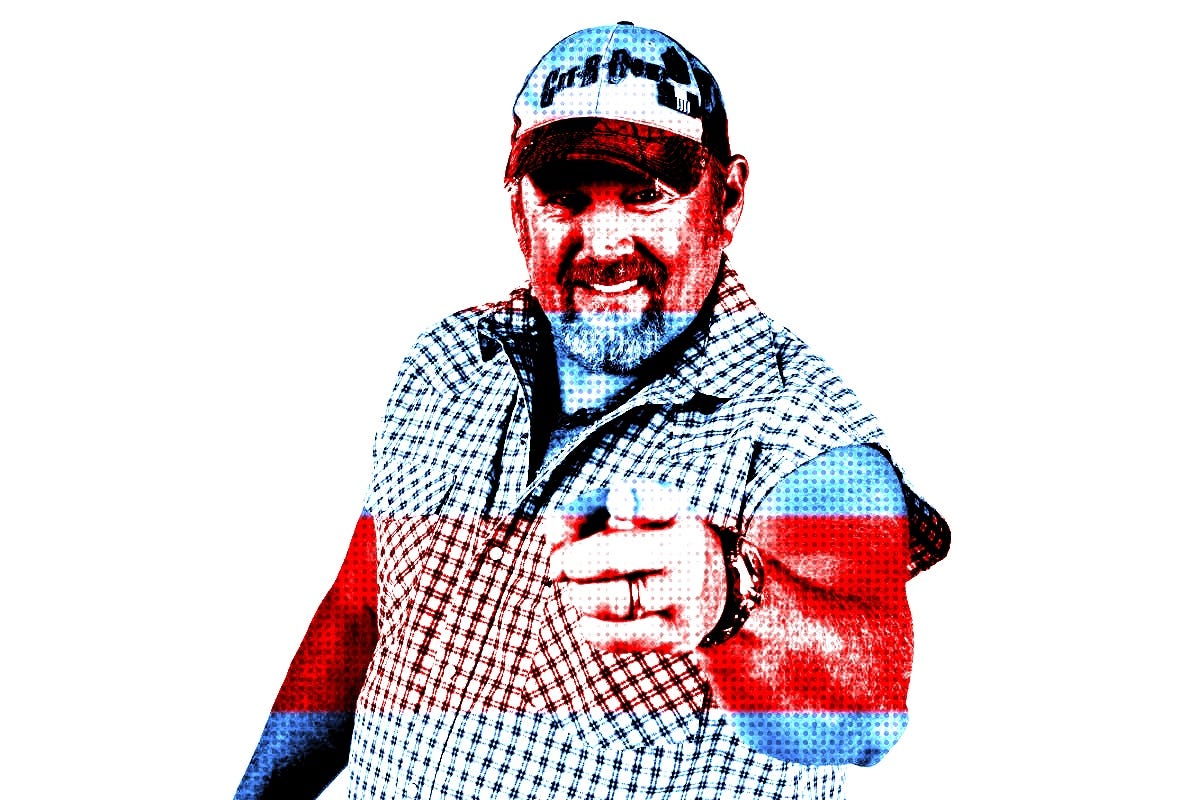Larry the Fable Guy
A liberal think-tanker blames the South for colonizing the rural North and ushering in Trumpism.
Centrist liberals continue to wander the desert and search for unifying theories to explain the troubles of contemporary America.
Listen to Hillary Clinton-types and they insist that Trump voters and anti-vaxxers were brainwashed by disinformation agents and deceived by consuming the wrong media sources, as this Harper’s essay expertly explains.
Blame Russia, in other words.
But in a post by Will Wilkinson that went viral this week, we should blame the South instead.
“My hunch is that rural white culture, which was once regionally varied and distinctive, became more uniform by becoming increasingly Southern,” wrote Wilkinson, a senior fellow at the Progressive Policy Institute—the NGO once known as 'Bill Clinton's idea mill.”
The gist of this “Southernification thesis” is that Southern culture—which he loosely defines as working-class white people who love Confederate flags, Larry the Cable Guy, and pop-country music—has quietly migrated to rural and exurban areas of the north.
Wilkinson is appalled to see his home turf of rural Iowa and, say, the hinterlands of Maine now be home to guys who talk like Joe Dirt (get some updated redneck cultural references!) and “the same cloying pop country, the same aggressively oversized Ford F-150s, the same tumbledown Wal-Marts and Dollar Generals, the same eagle-heavy fashion, the same confused, aggrieved air of relentless material decline.”
That’s quite a paragraph. It manages to lump together a taste for specific consumer goods with shitty predatory chain stores and—uh—poverty (?) into a milieu. And who is to blame? Wilkinson lays “Southernifcation” at the feet of—get this—Ted Turner for making the Atlanta Braves “America’s Team” on TBS.
Blaming the Super Station for laying the groundwork for Trump is hilarious but braindead as a work of analysis. Labeling a certain set of people by geography that is divorced from literal geography is bananas. Culture, economics, regional infrastructure, and voting preferences all get stuffed into the same blender and pureed into something labeled “Southern,” (assumedly because the Stars-and-Bars is tangentially involved).
It’s offensive in that it manages to flatten the South’s population into a single stereotype of poor white people from the country. Here in Alabama, you can certainly find people that shop at Wal-Mart and listen to Toby Keith in their giant pickup trucks.
But there’s plenty of diversity. In the Black Belt that stretches from Georgia to Mississippi, for instance, you’ll find a lot of poor, rural black families who vote for Democrats. In my black-majority city of Mobile, working-class people of all races shop at Dollar General and drive oversized vehicles. The county across the Bay, Baldwin, is mostly white and rural/exurban but upper income, so there’s more boat dads, golfers, and Ford F-150s.
Wilkinson’s depiction of the rural north is way off too. For every depressed post-industrial town there’s a thriving hamlet. Sure, Decatur, Illinois is bleak but go 50 miles west to Petersburg and you’ll find a charming downtown with craft breweries and boutiques. Go visit almost any small Michigan or Wisconsin town along Lake Michigan and you’ll find high-end vineyards, chocolate shops, and art galleries.
It’s certainly correct that America has an increasingly placeless, homogenous feel but that’s true everywhere—not just in small towns. Cities are almost just as bad these days. Every other boutique features a house style with what we now reflexively associate with urban authenticity—exposed brick walls, salvaged wood furniture, vintage light fixtures, and glass terrariums.
I could easily write a theory about tattooed white hipsters in Black Lives Matter T-shirts who drink fancy $15 cocktails in a faux dive bar in Atlanta or Nashville and proclaim it the “Northification” of the South, but you’d laugh that off too, wouldn’t you?
Calling everyone that’s not a lib “southern” isn’t just wrong, it’s bad politics.


